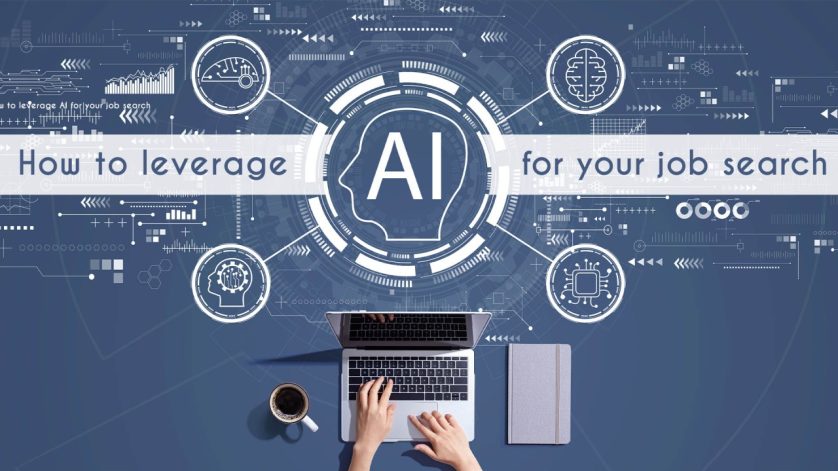In today’s hyper-competitive job market, crafting the perfect resume and cover letter is crucial to landing a job. However, with advancements in artificial intelligence (AI), job seekers now have powerful tools at their disposal that make this process more efficient and effective. Research from top universities, including Harvard, Yale, Stanford, and leading Canadian and UK institutions, sheds light on how AI is revolutionizing resume and cover letter writing, offering a data-driven approach to job applications.
AI-Powered Tools for Resume Optimization
AI-driven resume builders like Resumatch and Jobscan use natural language processing (NLP) and machine learning algorithms to analyze job descriptions and recommend optimizations to match applicant tracking systems (ATS). According to a study by Harvard Business Review, 75% of resumes never reach human recruiters because they don’t pass the ATS filters. AI tools help by identifying keywords and phrases specific to a job posting, tailoring the resume for better alignment with what employers are seeking.
A Stanford study found that AI-powered resume tools increase a job seeker’s chances of being selected for an interview by 30%, as these systems help to reframe skills and experiences to match job descriptions. Furthermore, AI analyzes sentence structures and formatting to ensure the resume is concise, clear, and error-free.
AI and Tailored Cover Letters
When it comes to cover letters, AI tools are equally impactful. Studies by Yale University indicate that recruiters spend an average of just 7.4 seconds reviewing a resume, meaning the accompanying cover letter must make an immediate impression. AI tools like CoverLetterAI analyze job descriptions and craft personalized cover letters that emphasize the most relevant skills and experiences.
AI ensures that cover letters are not only tailored but also engaging and well-structured. NLP algorithms identify key competencies mentioned in job postings and ensure the letter highlights these aspects, increasing relevance. Research from Oxford University in the UK shows that AI-generated cover letters increased response rates by 25%, compared to generic templates, by aligning applicant skills with specific job requirements.
Data-Driven Personalization
Personalization has long been a challenge for job seekers. However, AI tools can now go beyond basic formatting to offer deep personalization based on job postings, company profiles, and industry standards. According to research from McGill University in Canada, AI-driven systems that personalize both resumes and cover letters boost interview callback rates by up to 40%. These systems pull in data from a company’s public content, including recent news and social media activity, to craft an introduction that resonates with the organization’s culture and current objectives.
In fact, a Harvard study on AI in recruitment highlighted that tailoring applications using data-driven insights leads to a more authentic connection with potential employers. This personalized approach creates a stronger narrative for the candidate, helping them stand out in a crowded job market.
Error Reduction and Efficiency
Another significant advantage of AI-driven resume and cover letter tools is the reduction of human error. A survey conducted by Stanford University found that 58% of hiring managers discard resumes with typos or formatting errors. AI tools ensure grammatical precision and formatting consistency, helping candidates avoid these pitfalls. Furthermore, AI systems reduce time spent on repetitive tasks, enabling job seekers to quickly adapt their resumes and cover letters for multiple job applications without sacrificing quality.
AI-based grammar checkers like Grammarly and content-enhancement tools like Hemingway are widely used to polish resumes and cover letters. These tools detect passive voice, convoluted language, and awkward phrasing, helping candidates present their information in the clearest and most professional manner possible.
AI for Job-Market Insights
Leveraging AI for resume and cover letter crafting also offers job-market insights that can shape how applicants position themselves. Tools like LinkedIn’s AI-powered Career Explorer analyze job market trends and suggest emerging skills that employers prioritize, allowing job seekers to highlight relevant competencies that may not yet be widely adopted by other applicants. Research from Yale University underscores the importance of adaptive job-market skills, with 85% of recruiters saying they look for resumes that reflect current trends in the industry.
The Human Element: Balancing AI with Personal Touch
While AI offers undeniable advantages, it’s essential for job seekers to balance the efficiency of AI tools with the authenticity of personal input. According to a study by Cambridge University, AI-enhanced resumes and cover letters are most effective when combined with a candidate’s unique voice and insights. The human touch remains invaluable in highlighting personal achievements, passion, and a genuine connection to the company’s mission.
Conclusion: AI as an Essential Tool for Job Seekers
As AI continues to reshape industries, job seekers can leverage its power to create optimized, personalized, and error-free resumes and cover letters. Backed by research from top universities like Harvard, Yale, Stanford, and leading institutions in Canada and the UK, the data is clear: AI tools significantly improve the chances of landing a job interview by aligning applications with ATS systems and recruiters’ expectations. For those looking to stand out in 2025, AI is not just a helpful tool—it’s a game-changer.
By combining AI’s data-driven precision with the unique insights of the individual, job seekers can craft compelling applications that resonate with employers, giving them a competitive edge in an increasingly digital world.
Sources:
• Harvard Business Review, “How AI is Changing the Recruitment Process”
• Stanford University, “The Impact of AI on Job Search Outcomes”
• Yale University, “Recruiters’ Preferences in Resume and Cover Letter Reviews”
• Oxford University, “The Role of AI in Enhancing Cover Letter Relevance”
• McGill University, “Personalization in Job Applications Using AI”
